Everything is F*cked
The world seems pretty messed up right now. What will you do about it?
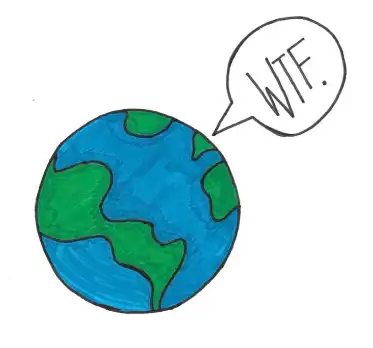
2016 makes me want to puke. Donald Trump is the President-elect of the United States. Brexit is happening. David Bowie is dead. The stock markets are a disaster. Innocent lives were lost in Orlando. In Istanbul. In Syria. From the zika virus. From police brutality. From deadly people with deadly guns. If there was ever a reason to drop to your knees and wail “EVERYTHING IS FUCKED” it would be right about now.
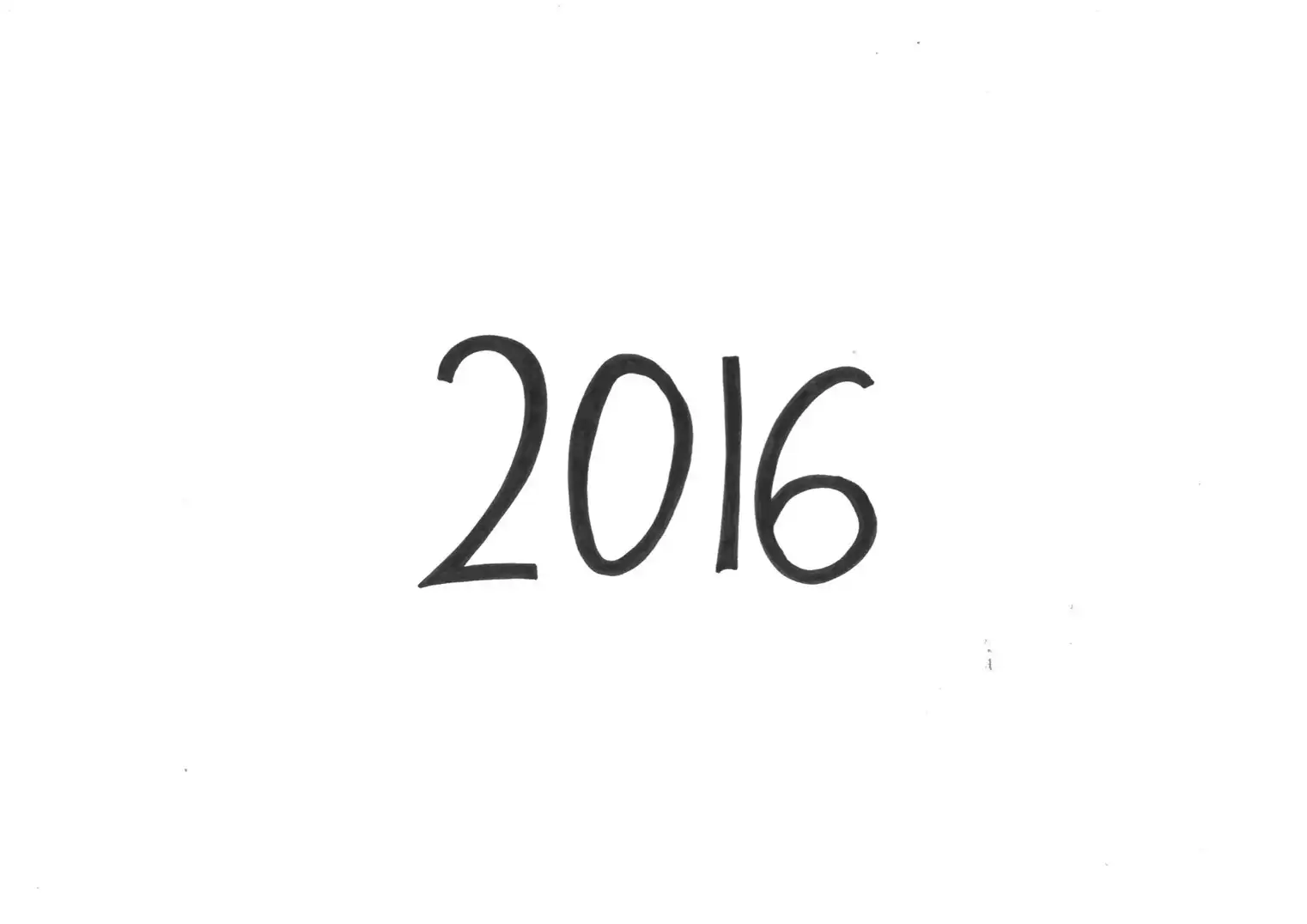
So let’s indulge in the suckiness for while and look at all the fucked up things in all their fucked up glory. Then maybe once we’ve got a little of the angst out, we can look at how we can help make these things a little less fucked. Because that would be pretty cool. And when I say ‘we,’ I do mean ‘me,’ but come along for the ride, if you’re also angry or, you know, just want to hear me say fuck more.
Democracy is fucked.Oh it pains me to write this, but politics is the most obvious example of contemporary fuckedness. Donald was elected and other people have far more intelligent things to say about it. But whatever you do have to say about the recent elections, one thing is becoming increasingly obvious: we simply do not agree on the fundamental truths. Politics is divided. People’s ideological differences are huge. And all of this seems to have led to mass confusion - wtf is (insert half of the population) thinking?In a truly brilliant piece, Tobias Rose-Stockwell, says “I believe that the way we consume information has literally changed the kind of people we are.” And, I think I might just believe that too. It goes like this (using America as a case study because let’s not kid ourselves):For the 20th century and some of the 21st, the news was delivered through select channels (regional newspapers/radio and three TV networks - NBC, UBS and ABC). There was a journalistic process and the whole thing was basically a monopoly on ‘The Facts.’ Then, we got this curious and fantastical thing: The Internet, which was initially seen as good because it was a way to diversify opinions. However, and this is a gigantic however, as the internet developed, so did something else: The News Feed. People started to not just receive the news willy-nilly, but to have it delivered to them via intricate and confusing algorithms.

Facebook, the primary culprit, became the messenger. The messenger of thousands and thousands of news sources, fake, real and everything in between. Apparently 62% of Americans get the news through social media. Problematic because, well, the news we are receiving is a curation designed to keep us engaged and happy and clicking on stuff. It’s called the Filter Bubble (term courtesy of internet activist Eli Pariser) and people (including those in charge of the media) happily live inside these bubbles because it is easier and more comfortable. When confronted with news that either confirms or challenges our views, humans have a tendency to interpret that news as a confirmation of what we already believe (psychologists call it the Confirmation Bias). That’s why my Facebook feed looks like this and when I see a meme of Jeremy Corbyn riding a bicycle I smile and scroll on, rather than throwing my phone into the nearest volcano:
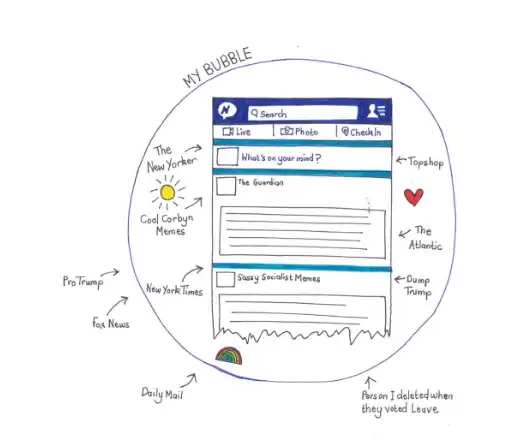
Facebook, a masterful puppeteer, has exacerbated our biases and through design, or a happy little coincidence, the emphasis on connection and community and ‘friends’ has led us to believe that our bubbles are representative of a significant sector of the population and so, consequently, liberals live in Liberal la la land and conservatives reside in Republican ranch. Shit, right? Well it gets shitter. Turns out stable democracies might have been flashing the warning signs for a while. Research due to be published in the January issue of the Journal of Democracy suggests that liberal democracies might be ‘at serious risk of decline.’ The investigation was prompted by a concept in political science called ‘democratic consolidation,’ whereas it is assumed once countries develop democratic institutions, a civil society and certain level of wealth, their democracy is secure. Researchers, Yascha Mounk and Roberto Stefan Foa, developed a three factor formula to test this theory:
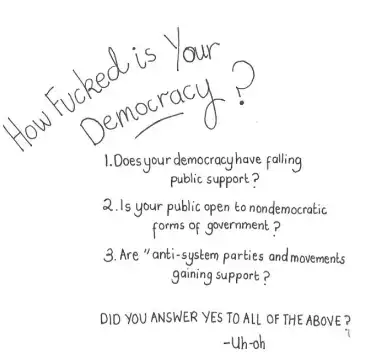
They found that across multiple countries, Sweden, Australia, the Netherlands, the United States, New Zealand and Britain included, the percentage of people who say it is ‘essential’ to live in a democracy has plummeted, especially among younger generations. Of course this is only one measure and correlation is not causation, but the facts remain. Donald won the presidential election by running as an outsider to the system, Brexit was a protest against traditional and established politics and right-wing hyper-nationalist movements are gaining momentum across contemporary Europe. Also, pre-all this statistical stuff, Socrates, who some (me) might call the Kanye of Greek philosophy, was (in Plato’s dialogues) shown to be highly suspicious of democracy. Comparing society to a ship, he noted that voting is a skill. A skill that needs to be taught systematically to people. Which circles round quite nicely. To vote, a voter needs to be informed of who or what they can vote for. They need to be educated. Where do people receive the majority of their election education? The news. Their news feeds. Why is that not a complete education? The filter bubble. Did I just use confirmation bias to back up what I said earlier? Quite possibly. What a pickle.I also feel compelled to say that for the purposes of this article, I simplified highly complex systems to democracies. The U.S. is actually a presidential republic and the U.K. is a parliamentary constitutional monarchy in which the monarch does not personally exercise power (according to Wikipedia anyway). In fact most countries govern under republics which have democratic tendencies, but saying ‘republics which have democratic tendencies are fucked’ just isn’t very snappy.So, we have established that democracy (in its more metaphorical sense) is fucked. What can we do?
Well, there are some things. If we conclude that the aim of the game is coexistence, we can look to a concept everyone at NYU Shanghai should be familiar with: the Contact Hypothesis. This is the notion that prejudice is reduced through extended contact with people that have different opinions and backgrounds, working with the principle that as we understand more about others, our implicit biases fade. Because (back to my new favourite guy Tobias Rose-Stockwell) democracy is essentially about compromise and consensus.The easiest thing to do is to expose yourself to different opinions. To check out just how stark those opinions are look at Wall Street Journal’s Blue Feed, Red Feed. There’s also this cool chrome extension that allows you to select either Democrats or Republicans (the group you wish to be more accepting of), and then inserts positive, high-quality news pieces into your Facebook feed, marked with a red banner. ‘High-quality’ being an imperative point. The media lies. Or you can actively seek out opposing news sources yourself (the more you avoid the publication, the better it will be). I won’t lie to you, there are times when you will want to throw your laptop into that volcano. You will want to rip your hair out and scream about the future of humanity. But that’s good, it means it’s working.
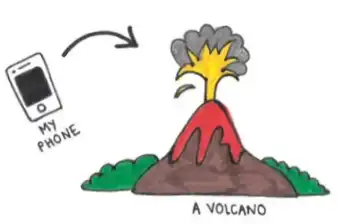
And it’s not all in cyberspace, engaging with people different from you can work wonders. I must admit I am so liberal I sometimes get in trouble for it. With older relatives who believe it isn’t ‘becoming for a young lady’ to openly discuss how tampon taxes make me want to punch myself in the vagina, or at bars when I talk more about Marxism than Malibu. But it’s important to be uncomfortable. It’s important to be annoyed. It’s important to break the bubble.I realise these steps won’t be magical. There’s things Facebook can do too (and probably won’t because $$$), like prioritising posts from verified sources, considering equal air time, exposing median viewpoints and being transparent about their elusive and all-determining algorithm. But, the problems are complicated and institutionalised and it is all too simple to blame them on Mark Zuckerberg being a wanker. Society has been fucked for a long time and if you wish to procrastinate two hours and forty-seven minutes and then descend into a guaranteed existential crisis, I do recommend Adam Curtis’ BBC documentary, HyperNormalisation, which presents the story of how political powers created a fake, simpler world instead of facing up to the planet’s complexities. It shows how financial institutions took control of politics and people became disengaged and desensitised to what was happening. I think (and hope) that it shows if we can see through HyperNormalisation, we may achieve hyperawareness...
Tinder is Fucked.Depending on how dramatic you want to be dating apps are either facing fatigue or an apocalypse. It would seem that Tinder (and its brothers and sisters) are no longer shiny new toys boasting unlimited opportunities to climb into the pants of attractive strangers, but have become the source of frustration, jade and shade. Vanity Fair, which takes on the more catastrophic the world is full of ‘soulless sex-hungry swipe monsters’ approach, tells the tale of ‘Tinderellas’ and ‘Tinder Kings.’ It argues that whilst people used to meet sexual and romantic partners through proximity, hookup culture and the rise of the internet have combined forces and sex has become ‘easy.’ Easy-peasy. … Too easy?

The writer goes on to compare dating apps to online shopping, because there are no elaborate profiles and no fear of rejection, just instant gratification. Consequently there’s no dating and no relationships and hooking up is a game or a contest to see who can care the least. This hit-it-and-quit-it attitude has, apparently, had an impact on men’s psychology in terms of “short-term mating strategies” and the rise of the ‘fuckboy.’A particular breed of arsehole, the fuckboy is a man/boy/gargoyle who sleeps with women with no intention of a relationship or even any kind of interaction post-sex. They will, as the ever-reliable Urban Dictionarydescribes, “screw over anyone and everyone as long as they get what they want.”
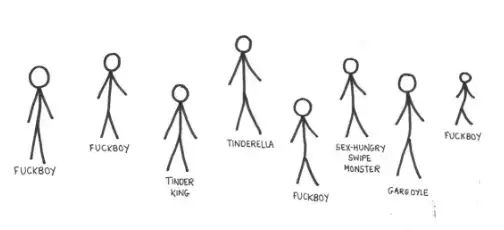
Dating app Hinge seems to have rebranded itself entirely based on these concepts; thedatingapocalypse.com opens with a Vimeo which I really hope is satirical, depicting a lonely man strolling around a desolute theme park inhabited by zombies and attractions such as ‘the wheel of disappointment,’ ‘mystery kiss’ and ‘ghosted’ tent. Is that how people really see reality? Like, ok, technology has its issues and dating has most definitely changed, but I’m just not sold on the idea of an apocalypse. I refuse to believe that millennials are loveless. In these dark times, love might be the best thing we’ve got. And this is pure speculation but I’ve come to think that dating’s problem is a lot more human than we would care to admit. Tinder is the tool, not the skill.
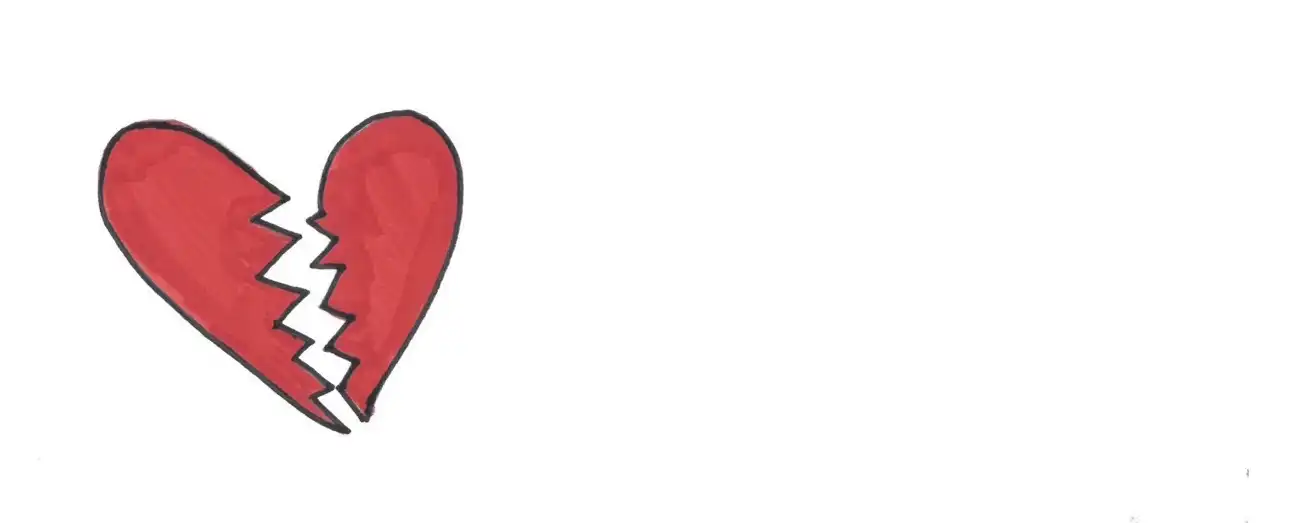
A piece by The New York Times, called ‘The Agony of the Digital Tease,’ explains the irritating behaviour of humanity perfectly. Digital messaging has allowed us to drop in and out of people’s lives as nonchalantly as we see fit, with a ‘hey’ or a ‘haha’ or a ‘lol i just saw a cat.’ Instead of ‘ghosting’ (cutting off contact completely) some people maintain communication with these little torturous ‘breadcrumbs’ of connection. I’m slightly ashamed to say I’m both the culprit and the recipient. Like most people who use the internet there’s always that one person that you just can’t seem to leave alone and you know they aren’t good for you and you know that your noncommittal 2AM words aren’t good for them. Yet, you still leave a trail of those breadcrumbs because people like to be validated and being the one that got away can provide a certain sort of momentary lift. But even though there may be cyberspace in between, there’s another person at the end of that iPhone, with real person feelings.
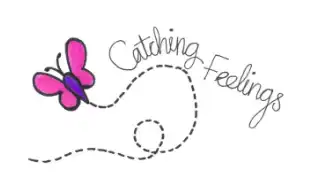
The point is there are feelings to consider. As much as we would like to believe the normalisation of casual sex is the greatest thing ever, there’s always a chance if you’re sticking your D in someone else’s V (or whatever combination of letters you like), you might grow to like more than just their D or their V. Because that’s the problem with body parts. They’re usually connected to a brain. And that brain might just enjoy Game of Thrones as much as you do and make your heart do a little backflip.Of course there’s evidence to suggest human beings are not sexually monogamous by nature and I get that if it’s your jam. But there’s also the very real and very scary notion that people use a myriad of excuses because they don’t want to be vulnerable. Perhaps (and this is so totally not from personal experience) you were so young when your heart was churned in a blender that you grew up to become cynical and sarcastic and inclined to say ‘fuck.’ Maybe you come from a broken home and it hurts to process just how much it hurt you so you shy away from intimacy and over analyse and sabotage and push people away. Maybe you’re scared. Maybe none of this will do.Maybe none of this will do because society has done an excellent job at being confusing as fuck. Somehow we are subjected to the narrative that a person simply isn’t complete without another, whilst also being told there are so many fish in the sea, tying yourself down is basically an injustice. I was born in the nineties with Love Actually and Notting Hill and the juvenile belief that love exists in the way we think it should. Now I’m supposed to date during an apocalypse. And be chill about it.Well, I call bullshit. Stereotypes are blurgh. It’s ok to feel your feelings.
Calming the Fuck Down.I won’t waffle on any more because this article is turning into a novel and I don’t wish to inflict my ponderings on you any further. But, I will say that democracy and dating are in no way representative of what is the most fucked - I’ve just been thinking about them recently. There are many more things to consider; psychology, feminism, thanksgiving, journalism, capitalism, communism, bras, my GPA… I suppose I wanted to say (in far too many words) is that they are worth getting angry about. If you aren’t mad, you aren’t paying attention. It’s oh-so satisfying to plummet into an everything-is-fucked pit and wallow there. The pessimist in me bloody loves it. But the wild optimist also loves a challenge. It’s ok saying (insert whatever you like) is fucked. But after a while, it’s like; so, what the fuck are you going to do about it? This article was written by Stephanie Bailey. Please send an email to managing@oncenturyavenue.com to get in touch. Illustration Credit: Stephanie Bailey